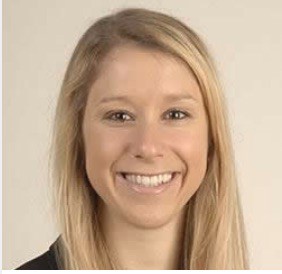Health Equity Fellowship
Mission
The Health Equity Fellowship Strives to train the next generation of leaders interested in reducing healthcare disparities and promoting health equity. We aim to do this with training in public health, policy, ethics, social medicine, research, and practical clinical experience both domestically and internationally in rural and urban settings.
Goals
- Understand the complex relationship between social determinants of health (SDOH), health policy, ethics, and health equity
- Awareness of current efforts to promote health equity locally, nationally, and internationally
- Develop the ability to assess diverse health systems both domestically and globally
- Develop and implement innovative solutions to reduce healthcare disparities and promote health equity
- Learn the medical, policy,and public health topics related to healthcare provision in rural, urban, and global settings
- Develop the knowledge to evaluate the quality of and effectiveness of programs
- Understand the importance of interdisciplinary partnership with both local and academic organizations
- Understand how to use the Emergency Department as a platform for health equity research and education
- Establish a professional network and administrative skills for educational exchange, research, and funding
Fellowship Structure
The fellowship is a two year program which incorporates a Masters degree, clinical emergency department responsibilities, health equity projects, and field work in rural or global settings.
Academic Projects & Scholarship
At the start of the fellowship, fellows will meet with the director and create a fellowship plan. Fellows will be expected to designate an area of focus within health equity and will work to build scholarship and expertise in the area including:
- Publication of a scoping/systematic Review
- Completion of a pilot project from inception to publication
- Submission of a larger grant application
Additionally, they will have the opportunity to engage in local projects focused on immigrant/refugee medicine, social determinants of health, opiate and substance abuse, and harm reduction. They will also be encouraged to participate in underserved clinical experiences globally with our partners in India, Belize and Uganda or domestically with the Indian Health Services.
Please see the Health Equity Division for more information about the division, projects, and faculty.
Education
The didactic curriculum is structured around a series of conferences that will cover the core health equity topics pertaining to social determinants of health and underserved medicine. Additionally, departmental book clubs and inter-institutional journal clubs will help facilitate learning on current topics and literature.
Fellows will also get structured training through a Masters degree in their area of interest (Public Health, Clinical Investigation, Education) to develop a strong foundation in research methods and project design.
Clinical Skills
The Health Equity fellows will develop strong teaching and leadership skills through precepting residents and medical students in the clinical space. They will be the primary teachers for Emergency Medicine Resident didactics on health equity related topics during intern selectives and weekly conferences.
Current Fellow
Jacqueline Furbacher, MD
Jackie (Jacqueline) Furbacher completed her Emergency Medicine Residency at The Ohio State University Wexner Medical Center where she served as chief resident. She received her Doctor of Medicine at The University of Texas Health Science Center at Houston and Bachelor of Arts in Biochemistry at The University of Colorado at Boulder. Her research interests include health disparity, social determinants of health and food insecurity. She is originally from Houston, Texas. She enjoys spending time outside, cooking and exploring New England with her dog.
Current projects: Manuscript from SAEM Consensus Conference findings on Social Determinants of Health Screening Tools, Case Based Discussions for Health Equity Selective, Literature review focusing on food insecurity in Emergency Departments. Survey on EM Physicians' attitudes, opinions, and understanding around food insecurity in the Emergency Department, SDOH screening in the ED
Fellowship Spotlight
https://www.socialempact.com/fellowship-spotlights/umass
More Information:
Benefits:
- Competitive salary with opportunity for moonlighting
- Full Benefits including health, dental, disability, and malpractice insurance
- Masters support and CME funding
- Seed grants available for research and travel through the Department of Emergency Medicine and other affiliates
Fellowship Requirements:
- American Board of Emergency medicine board-eligible or board-certified emergency medicine physician.
To Apply:
Interested candidates should send your completed application to Dr. Payal Modi, Director and Jean Baril by October 15th, 2021.
- A personal letter outlining your goals and objectives for the fellowship
- Current Curriculum Vitae
- 3 letters of reference (including one from your current Residency Director)
Interviews will take place on a rolling basis, so please submit your application as soon as possible. Offers will be extended November 1st.
Please contact with Questions:
Payal Modi, MD
Director, Health Equity Division
UMass Chan Medical School
Department of Emergency Medicine
Payal.Modi@umassmemorial.org
Tel: 508-421-1400
Fax: (508) 334-7411


